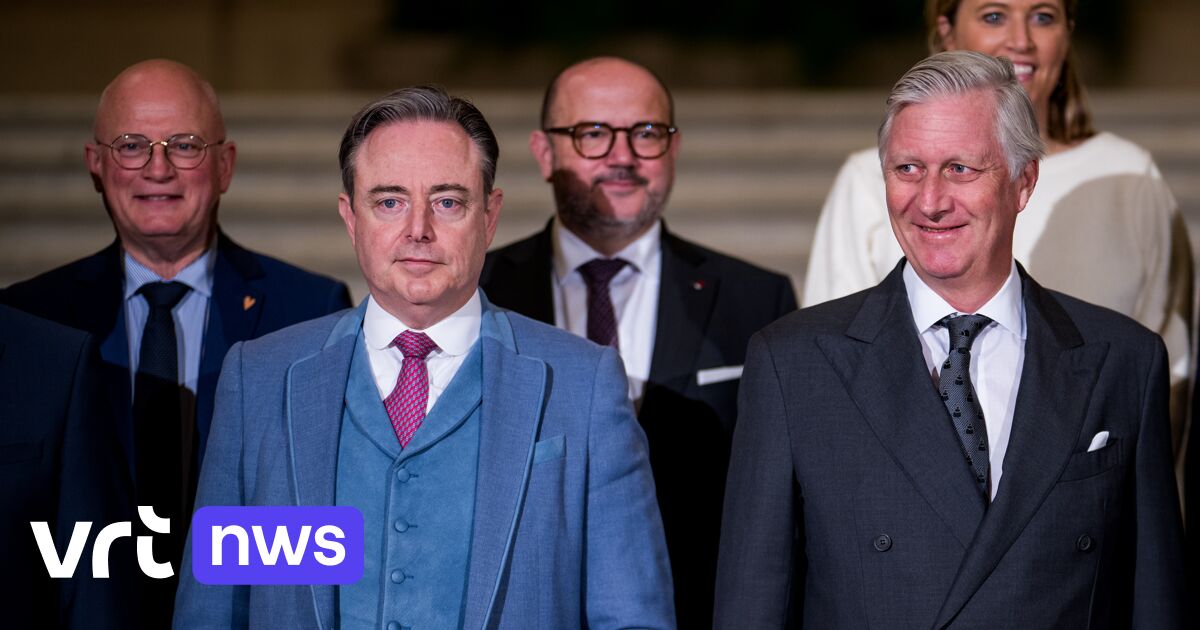Shortly after federal agents killed Alex Pretti Saturday morning, the Department of Homeland Security began to run with the story that the dead man had been armed and dangerous. He had a gun, DHS said. (A Bellingcat analysis of the video concludes that Pretti was unarmed when he was shot.) He had approached the agents holding the gun, DHS said. (He was holding a phone, The New York Times reports.) Pretti died on his knees, surrounded by armed Border Patrol agents, with shot after shot unloaded in his direction.
“Those who cannot remember the past are condemned to repeat it” said George Santayana. Such has been the fate of Sir Keir Starmer, who recently said:
My experience as Prime Minister is of frustration that every time I go to pull a lever, there are a whole bunch of regulations, consultations and arm’s length bodies that mean the action from pulling the lever to delivery is longer than I think it ought to be, which is among the reasons I want to cut down on regulation generally and within Government.
He is not of course the first minister to discover this. The diaries of Tony Benn and Richard Crossman express frustration at the difficulty of getting things done. And in 1999 Tony Blair spoke of having “scars on my back” from trying to reform public services. Writing in 2008 David Richards, David Blunkett and Helen Mathers described (pdf) three decades of frustration with policy-making:
A minister might pull a policy lever only to discover later that it has not had the desired effect.
In believing that there are such levers politicians are following some defunct economist. In 1949 Bill Phillips built a machine which, he thought, represented the economy. Partly, it did; it showed the circular flow of income and it reminded us that the economy is not an act of nature but a creation of humankind - and what humans can create they can change. But partly it did not, as it omitted important things such as inequality, environmental degradation, supply shocks, growth and innovation.
Polly McKenzie draws an inference from all this - that the “levers of government” is an unhelpful dead metaphor:
The economy is not a thing but an aggregation of billions of decisions, each made on the basis of incentives, opportunities and desires...Government has tools, it’s just that they are not mechanically connected into that system like a lever is.
Giles Wilkes agrees:
All physical analogies for working on the economy are misleading and imply the sort of direct causality, measurability, clear categories and obvious relationships that barely ever applies.
They’re right.
But, but, but. As George Lakoff has shown, metaphorical thinking is ubiquitous. When we confront abstractions such as the economy, politics, nature, or moral questions, we use metaphors to try to make sense of them. Asking us to forego all metaphors is a counsel of perfection. Metaphors are like models (in fact, models are metaphors): all are wrong, but some are useful in some contexts.
On the basis that it takes a metaphor to kill a metaphor, but subject to that caveat, I’d suggest an alternative - to regard the economy and society not as a machine but as a garden.
For one thing, you do not make a garden just as you choose. You cannot simply impose a vision. What you grow depends upon the type of soil; how much sun you get; how long your growing season is; how much space you have and so on. You need to work with what you’ve got, not against it. It’s similar in policy-making. You need to work with and through civil servants, not merely rail against the “blob”. And you must remember Burke’s words:
Circumstances (which with some gentlemen pass for nothing) give in reality to every political principle its distinguishing colour, and discriminating effect. The circumstances are what render every civil and political scheme beneficial or noxious to mankind.
This was one way in which Truss went wrong. Fiscally expansionary tax cuts might have worked in a depression. But they didn’t when markets were worrying about inflation. The circumstances rendered her scheme noxious.
Truss is mad, but this government is guilty of something similar. The UK economy’s comparative advantage lies to a large degree in higher education and crreative industries; these are some of our garden’s most succesful plants. But the government is putting weedkiller onto these by taxing overseas students; allowing nibmys to close down music venues; making it harder for musicians to tour Europe; and allowing tech companies to steal writers’ work. Meanwhile it is also trying to grow flowers that are not well-suited by subsiding steel and chemical industries, like trying to grow a mediterranean garden in north-facing clay soil.
“Cut your losers and run your winners” applies in gardening as well as investing. The government seems not to realize this.
Both gardening and policy-making are forms of guided emergence. Societies are the product of human actions but not of human design, which is why the machine metaphor is at best only half-right. Similarly, gardeners cannot easily predict exactly how their garden will look because of course the weather (among other things) will intervene. What they can do is simply create the best chances for plants to thrive by feeding and watering them properly, and putting them in the right light and soil. So it is with governments. They can provide the right conditions for a thriving people and economy (to a much greater extent than it is actually doing so now) but they cannot guarantee that they will indeed thrive.
This is not to say that conditions are always a binding constraint. Gardeners prepare soil by mulching and composting, or improving the drainage of clay soils or by changing the acidity of the soil. Good politicians do something similar; they know that public opinion is not a fixed datum but is something malleable. In Thinking the Unthinkable Richard Cockett describes how thinktanks such as the IEA and CPS spent years preparing the ideological ground for Thatcherism. And Thatcher herself did not immediately embark upon that project; it was not until her second term of office that she began serious privatization and attacks on the NUM. You must plant at the right time.
Her epigones, however, have not been so wise. Osborne and Cameron failed to cut the size of the state in part because they never made a serious ideological case for doing so or had a means of identifying genuine waste, instead hiding behind mindless drivel about the “nation’s credit card”. And Starmer did not devote enough effort in opposition to undertanding just how effort much is needed to repair the economy and public services.
Some constraints are binding; the neighbour’s fence or the position of the sun. Others are not so much. Equally, politicians must know what’s a binding constraint and what isn’t.
A further parallel between gardening and politics is that in both, change takes time. All gardeners know the need for patience, if only because it can take years for plants to grow. The same is true of social change. Shifting tens of thousands of people from some jobs to others takes a long time. One of the right’s consistent errors has been to under-appreciate this. Just as it was wrong to think unemployed miners in the 80s would soon find new jobs, so it wrongly though that companies could quickly divert trade efforts from the EU to non-EU countries. But economies and people don’t work this way. Change takes time.
Which leads to another similarity between gardening and policy-making. Gardens are almost never perfect; there are always some plants that aren’t (yet) thriving. Similarly, there is, as Adam Smith said, “a great deal of ruin in a nation.” Which is inevitable, because there are trade-offs. Do you want a benefit system that errs on the side of generosity or meanness? Do you want efficient public services or ones that have some slack in them to respond to emergencies? Do you want a simple tax system with some inequities, or a more complicated one with deadweight costs?
Some things, therefore, we must just live with. In gardening, said Gertrude Jekyll, “one has not only to acquire a knowledge of what to do, but also to gain some wisdom in perceiving what it is well to let alone.” At this time of year, for example, it’s tempting to start weeding - and in doing so to dig up perennials by accident. Echoing her, the late John Cushnie would often tell listeners to Gardeners’ Question Time: “it’s not worth the bother.” Politicians, by contrast, rarely heed this, preferring, in Jaap Stam’s words, to be “busy cunts.”
There’s one more similarity. Gardening isn’t only about enouraging growth. We also need to destroy things - to kill weeds and pests; to prune branches; and even to cut out whole plants. Sometimes, we need a chainsaw.
The same is true of politics: you must not only cultivate client groups but also weaken or destroy opposing interests, as Thatcher, for example, attacked trades unions. Politics isn’t only about technocratic fixes, hawking product like market traders, and TV soundbites. It is about forming and weakening interest groups.
In this respect, Shakespeare knew more than we know today, our brains having been addled by moronic current affairs shows. In Richard II he has a gardener say of Richard:
O, what pity is it
That he had not so trimmed and dressed his land
As we this garden! We at time of year
Do wound the bark, the skin of our fruit trees,
Lest, being overproud in sap and blood,
With too much riches it confound itself.
Had he done so to great and growing men,
They might have lived to bear and he to taste
Their fruits of duty. Superfluous branches
We lop away, that bearing boughs may live.
Had he done so, himself had borne the crown,
Which waste of idle hours hath quite thrown down (Act 3 scene 4).
And Bolingbroke spoke of as enemies as pests:
But we must win your Grace to go with us
To Bristow Castle, which they say is held
By Bushy, Bagot, and their complices,
The caterpillars of the commonwealth,
Which I have sworn to weed and pluck away. (Act 2 scene 3)
He had them killed. Like nature, politics is and has to be red in tooth and claw.


